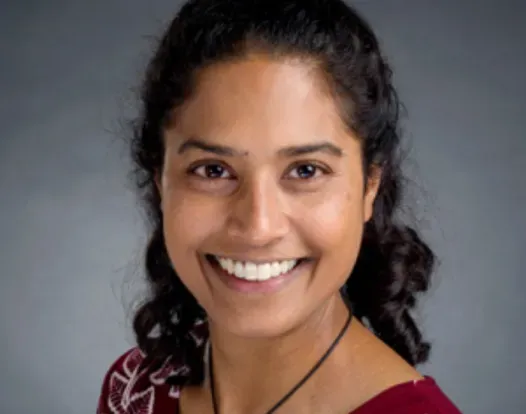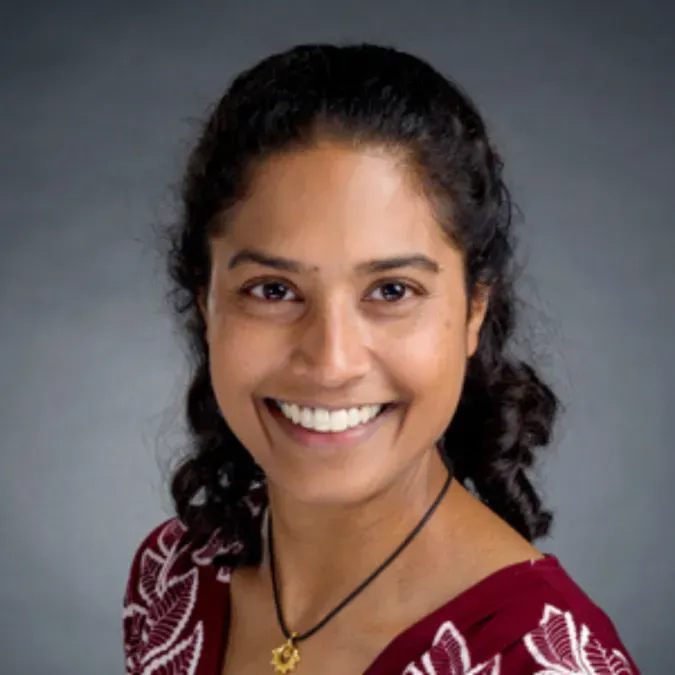These researchers have dedicated their careers to finding new treatments and cures for people with cancer.


Genomic sequencing is helping researchers improve cancer care for young patients in resource-limited settings, where antibiotic-resistant infections are among the main causes of mortality in children receiving cancer treatment. Sheena Mukkada, MD, MPH, an infectious diseases clinician at St. Jude Children's Research Hospital, uses sequencing to detect the genetic origins of antibiotic resistance in children with cancer living in low- and middle-income countries (LMICs).
“When doctors understand which drugs kill which bacteria at what concentrations, we can choose antibiotics more appropriately,” says Dr. Mukkada.
Doctors often prescribe antibiotics to young patients to help them manage infections that arise from common cancer treatments. Sequencing may help oncologists make more accurate diagnoses and personalize care for patients, which could help more children survive.
Revealing Drivers of Antibiotic Resistance
Using a Conquer Cancer Global Oncology Young Investigator Award (GO YIA), Dr. Mukkada led a multi-institutional study using genomic sequencing to unmask the genetic mechanisms that give rise to antibiotic resistance.
The GO YIA provided support to sequence genetic samples and access the equipment required to break down bacteria for further analysis. In collaboration with scientists from hospitals in the United States, Guatemala, El Salvador, and Panama, Dr. Mukkada found the genetic basis of antibiotic resistance in bacteria from these studies by identifying the genes that explain certain forms of resistance. This has allowed Dr. Mukkada and the global cancer care community to design better diagnostic testing and map out more effective care plans for patients who require antibiotic therapies.
“We now know which resistance genotypes are most frequent and therefore what we should test for in a targeted fashion,” says Dr. Mukkada.
International collaboration unlocks promising possibilities and safer pathways for helping patients conquer cancer, regardless of where they live. Despite existing global inequities, Dr. Mukkada's GO YIA project proved the power of building strong networks between high-income and resource-limited cancer research teams.
“We evidenced that even in resource-limited settings, it is possible to do the quality of sample preparation required for genomic work. This provides a proof of concept for a larger rollout targeting other global sites, including a shared data repository,” says Dr. Mukkada. “Our work can and should be leveraged to demonstrate the possibilities for making more appropriate treatment decisions and to advocate for expanded access to these medications and diagnostic test.”
Next Steps
Following the success of her GO YIA project, Dr. Mukkada and her team are working to make complex genomic sequencing and diagnostic testing in LMICs more affordable.
“The next phase of our project will be to incorporate a cost-analysis of targeted diagnostic testing to investigate the impact of novel diagnostics on resource use,” says Dr. Mukkada. “For the sites who participated in the initial GO YIA project, we are also working on implementing targeted diagnostic tests based on our findings.”
Dr. Mukkada believes partnership between pediatric oncologists and infectious disease experts is essential to increasing survival and improving outcomes.
“Global survival gains in childhood cancer cannot be achieved without optimizing infection management,” says Dr. Mukkada. “Learning more about infections and developing strategies to treat them in patients with pediatric cancer also lays the foundation for improving care for all patients.”

